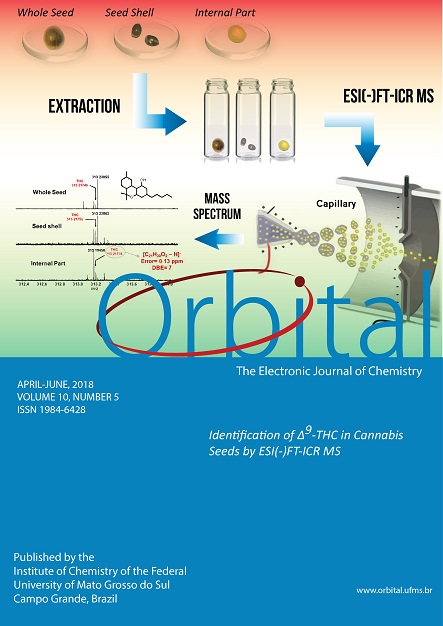Synthesis and Biological Activity of Fe (III) Acetate for Microbial Control at Breeding Sites of Aedes aegypti (Diptera: Culicidae)
Published 2018-06-30
Keywords
- acetate,
- bactericidal,
- metallo-organic pesticides,
- mosquitoes,
- zika
How to Cite
Abstract
Unconventional approaches can be used control populations of disease-carrying insect to improve health, economic, social, and environmental standards. There is a need for prolonged reduction of vector populations, using low-toxicity and low-cost products in domestic settings. Metals such copper and iron have shown to be toxic to insect larvae, with a delay in reproduction, damage to the cells of the digestive system and the production of free radicals and oxidant species, resulting in tissue damage and death. To control insect breeding, we synthesized and characterized Fe (III) acetate via carbonate. Fe (III) acetate showed no toxic effect on mosquito larvae up to 1.000 mg L-1, but was bactericidal for Gram-positive and Gram-negative bacteria, mainly due to the action of Fe (III) acetate.

